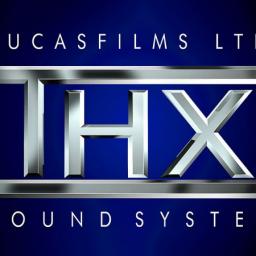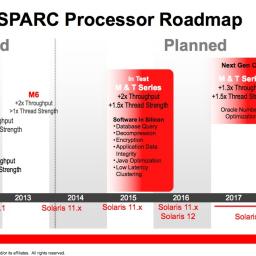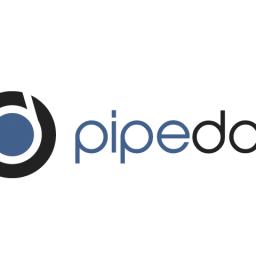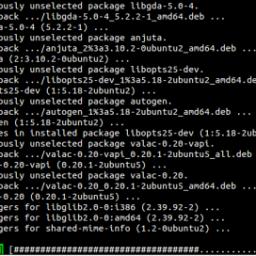
New Scientist, on authority of NASA's Jet Propulsion Laboratory, reports that the
first moon outside of our solar system may have been discovered.
It is not yet clear what double object
MOA-2011-BLG-262 is: it may be a rogue planet with a massive moon about 1800 light years from Earth, or a faint star (brown or red dwarf) with a Neptune-sized planet much further away.
The discovery was made by telescopes in New Zealand and Tasmania during a micro-lensing event in 2011. Since the micro-lensing event is over and we don't know the distance of the double object, we cannot distinguish between both possibilities.
(The discovery was published late 2013, but it is
making mainstream news now .)
[Cross-posted to SoylentNews]
Phoronix
reports that Linksys is finally shipping its
successor to the highly popular
WRT54G wifi router. The original spawned a number of open source router projects, including
DD-WRT , which partially shares its name. Features of the new model:
- Wireless-N & AC (2.4 & 5 GHz)
- 1.2 GHz dual-core ARM processor
- 128MB of flash memory
- 256MB of DDR3 RAM
- 4 exchangeable external antennas
- 1 gigabit ethernet port + 4 gigabit ethernet switch
- 1 USB 3.0
- 1 eSATA/USB 2.0 (somehow sharing the same port)
Although the specifications and commitment to open source are welcome, the retail cost of $250-$280 may turn some away.
 Today (April 10th)
Today (April 10th) , NASA released over 1000 projects as open source in a
searchable database .
NASA already released the
source code and schematics of the Apollo 11 Guidance Computer, Command Module (codenamed Comanche054) and the Lunar Module (Luminary099) on July 20th, 2009; the 40th anniversary of the first moon landing.
In February of this year,
DARPA published a similar catalog. Both code databases are the result of a 2011 order from President Barack Obama that federal agencies increase the pace of technology transfer.
(Cross-submitted to SoylentNews)

So you've just settled into your seat at the movie theater, and as the film starts to roll it begins with an advertisement for the THX Sound System, accompanied by a sound that's
recognizable in a heartbeat, but a bit hard to describe in words [mp3]. That sound is called Deep Note. It was created in 1982 by Dr. James A. Moorer, who used the Audio Signal Processor (ASP), also known as
SoundDroid to create it.
The ASP was a complex machine to program and included about 20,000 lines of C code to program. Only one ASP was ever produced, and LucasFilms LTD owns it. So what do you do if you're an enterprising hacker interested in blowing the covers off your speakers at home by replicating that sound?
You build your own .
Read more at
Hackday.com .

A recent study out of the University of Rochester investigating the link between violence and video games suggests that it's
gamer frustration and not game content that may lead to feelings of aggression. The study found that games with poorly-designed controls or excessive difficulty led to player frustration which, in turn, led to feelings of aggression, and this was independent of whether the game's content was violent or not. This study is an interesting and potentially important addition to the long-running debate on the possible connection between video games and aggressive behavior. A further analysis is available
here .
[Ed. note: so, if
your word processor frustrates you , does that lead to violence too?
Because it seems like it might .]
A remote vulnerability in the OpenSSL library was disclosed yesterday. A missing bounds check in the Heartbeat Extension implementation can trigger a buffer over-read leading to the loss of sensitive data, including the disclosure of the private key.
The Heartbleed bug allows anyone on the Internet to read the memory of the systems protected by the vulnerable versions of the OpenSSL software. This compromises the secret keys used to identify the service providers and to encrypt the traffic, the names and passwords of the users and the actual content. This allows attackers to eavesdrop on communications, steal data directly from the services and users and to impersonate services and users.
More information:

Wired has an interesting article about a new company,
Goldiebox , who is making
science and engineering toys targeted to young girls . Apparently, this new direction in play-education was not supported by the conventional toy industry, but through crowd-funding Goldiebox was able to break into the mass market and is going like gang-busters. Interesting quote from the CEO: "A lot of the men in the toy industry have daughters, and many of them are tired of what they have to offer their daughters, too."

Oracle has published a
roadmap [PDF] for its SPARC and Solaris platforms and makes a commitment to SPARC until at least 2019. This was picked up by The Register in a recent
article :
Optimists will be pleased that Oracle appears to have three generations of silicon in mind and appears committed to SPARC until 2019 and beyond. Pessimists might wonder if the "core enhancements" due around 2019 represent a worryingly vague statement of direction and/or intent. The planned 2017 and 2018 enhancements to thread strength and throughput also look incremental compared to the heftier enhancements planned for 2015 and 2016, which could be worrying for those who need SPARC to scale.
[Cross-posted at SoylentNews.org]
The
logo contest had 528 entries from 127 different designers. There were so many interesting submissions, that I found it hard to pick just one!
The
winning logo is now plastered at the top of this page, for all eternity. The website's design and CSS has also been tweaked a bit to reflect the new "lighter" look.

From
Phoronix :
Debian developers announced this week version 1.0 of APT, their Advanced Packaging Tool, on the day that the packaging project turned sixteen years old.
APT was conceived sixteen years ago on 1 April and on 1 April of this year they celebrated its "sweet sixteen" by releasing APT 1.0. This was no April Fool's Joke. One of the new features to APT 1.0 is a new apt binary that has most of the commonly used commands from apt-get and apt-cache.
If this were Chrome or Firefox, they would be in the hundreds by now.
[
Editor's Note: More information on Debian APT 1.0 is available in the official release announcement and on Synaptic and APT developer Michael Vogt's blog . ]
 New Scientist, on authority of NASA's Jet Propulsion Laboratory, reports that the first moon outside of our solar system may have been discovered.
New Scientist, on authority of NASA's Jet Propulsion Laboratory, reports that the first moon outside of our solar system may have been discovered.






